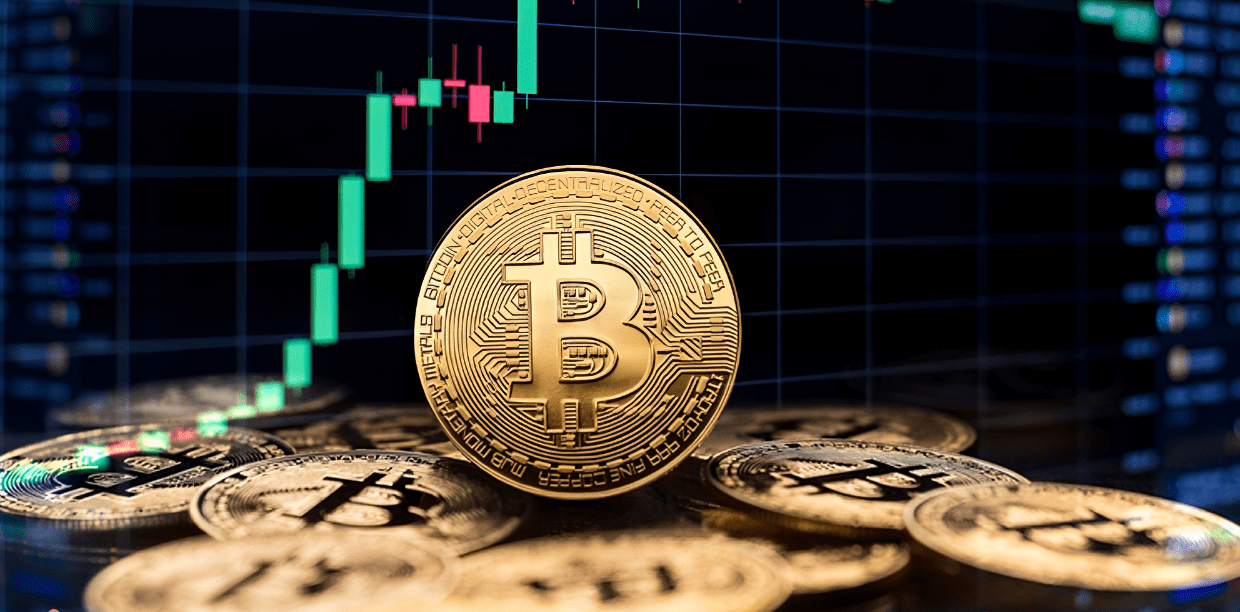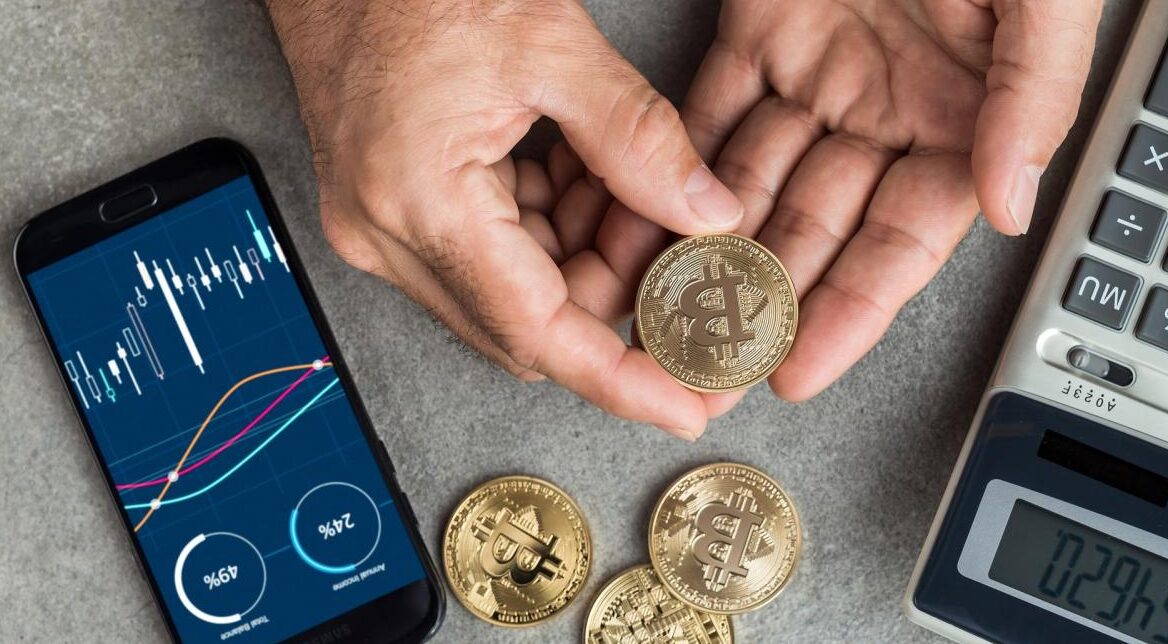Bitcoin is the first and most well-known cryptocurrency in the world. It is still at the forefront of digital finance and continues to interest investors, technologists, regulators, and the general public. Bitcoin is a decentralised currency that uses blockchain technology. Its changing environment is full of news that affects not just the crypto ecosystem but also the larger financial markets. This page goes into detail about the most recent Bitcoin news, such as changes in the market, new technologies, changes in regulations, and what these things mean for the future of finance as a whole.
Bitcoin’s Origin and Fundamentals
Satoshi Nakamoto, a person or organisation, started Bitcoin in 2009. It came up with a groundbreaking idea: a digital money. That isn’t controlled by any one group and runs on a peer-to-peer network with blockchain technology. This blockchain is a secure, decentralised ledger that keeps track of transactions involving the Bidens. The world, making sure that trust is destroyed without banks or governments.
Unlike regular fiat currencies, which central banks can inflate, Bitcoin has a fixed supply of 21 million coins. Bitcoin is often called “digital gold” because it is hard to get and is becoming more popular. To make sense of Bitcoin news and market behaviour, you need to know these basics.
Bitcoin Price and Market Dynamics
Bitcoin’s price has changed a lot throughout the years, and the last several months have been no different. There are several things that affect the value of a cryptocurrency, such as how investors feel about it, the state of the economy as a whole, new rules, and developments in technology. Bitcoin’s market dynamics have been greatly affected by institutional adoption. Tesla and MicroStrategy are two companies that have publicly put billions of dollars into Bitcoin. This shows that big investors are more confident in the currency.

Also, Bitcoin exchange-traded funds (ETFs) have been introduced and approved in different places, making it easier for regular investors to get into Bitcoin without really owning it. Because of worries about inflation and political tensions around the world, many people see. Many people see Bitcoin as a means to protect themselves from traditional financial concerns. This view has increased demand during times when the market is unstable. Bitcoin’s price, on the other hand, is still quite susceptible to news about regulations, including when the government cracks down on exchanges or mining activities. Such events can lead to quick fluctuations in the market.
Bitcoin’s Technological Advancements
The technology that powers Bitcoin is always changing to solve problems with speed, scalability, and transaction costs. The Lightning Network is a layer-two solution that makes off-chain payment channels possible. This is a big step forward because it makes transactions faster and cheaper. This improvement is very important for Bitcoin to be used as regular money. Segregated Witness (SegWit), which was added in 2017, made the blockchain work better by modifying how transaction data is stored, which lets more transactions fit in each block.
The activation of Taproot in 2021 has made Bitcoin’s scripting more powerful and private, paving the way for more advanced smart contract features. The Bitcoin community’s development plan is also affected by research into quantum computing. As quantum technology gets better, it could make current cryptographic protections less effective. Developers are currently looking towards quantum-resistant algorithms to protect Bitcoin from dangers that may come up in the future.
Bitcoin Regulatory Landscape
Regulation is one of the most captivating parts of Bitcoin news because it shows the contrast between innovative ideas and government control. Some countries are open to bitcoin, and others are completely against it. The Securities and Exchange Commission (SEC) and El Salvador made news throughout the world when it became the first government to accept Bitcoin as legal cash. The Commodity Futures Trading Commission (CFTC) are two of the regulatory bodies in the United States that are actively working to set rules for Bitcoin trading, taxes, and investment products. The way the SEC handles Bitcoin ETFs and punishes some crypto platforms shows how challenging it is for regulators to find a balance between encouraging new ideas and keeping investors safe.
El Salvador made news throughout the world when it became the first government to accept Bitcoin as legal cash. This brave action has aroused both excitement and doubt around the world. This has had a big effect on the spread of Bitcoin mining around the world. The European Union’s planned Markets in Crypto-Assets (MiCA) law would establish a single set of rules for all member states to follow when it comes to cryptocurrencies. This might change how Bitcoin is used and traded in the area.
Key Players in Bitcoin Ecosystem
A wide range of people and groups help the Bitcoin ecosystem. Thought leaders like Andreas Antonopoulos have been very important in teaching people about Bitcoin and supporting its ideas. Developers all across the world are still working on the Bitcoin protocol to make sure it is safe and works well. Big mining pools like F2Pool and AntPool control most of the mining operations that check Bitcoin transactions.

These groups help keep the network safe, but they also keep the argument going regarding decentralisation. Major cryptocurrency exchanges like Coinbase, Binance, and Kraken provide the basic infrastructure for trading and holding cryptocurrencies, which affects market access and liquidity. More and more institutional investors and hedge funds are adding Bitcoin to their portfolios. This shows that it is moving from being a specialist asset to a mainstream financial instrument. Bitcoin’s significance in global finance is changing as more and more people adopt it.
Bitcoin’s Global Financial Impact
Bitcoin is a wonderful option for sending money and saving in countries with weak banking systems or unpredictable economies. Because it is decentralised, it gives people financial freedom and lets them go around traditional gatekeepers. Central banks all around the globe are looking into creating their own digital currencies (CBDCs), which are based on Bitcoin’s unique methodology
The fact that these systems can work together and compete with one another will probably affect how finance evolves in the future. Bitcoin could be more useful with technological breakthroughs like cross-chain interoperability and more improvements to privacy and smart contract capability. BuClear regulations and a mature industry are still the most important. That will affect Bitcoin’s long-term growth and use. v
Final thoughts
Related articles like “Blockchain Technology Explained”, “Understanding Cryptocurrency Regulations”, and “Cryptocurrency Investment Strategies” can help readers have a better idea of the crypto world. You can get timely and reliable information by keeping up with credible outside sources like CoinDesk, The Block, and official regulatory websites.

